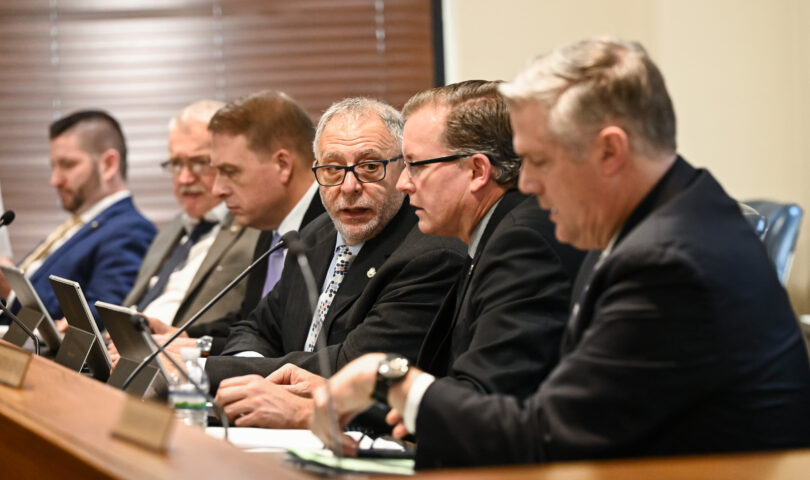MORGANTOWN – The Senate Judiciary Committee on Wednesday made a third go at passing a bill to codify certain powers of the state schools superintendent.
SB 189 says “county boards of education, county superintendents, employees of the county boards of education, and the West Virginia Public Employees’ Grievance Board shall give substantial deference to the state superintendent’s interpretation of that part of the school law or rules of the State Board of Education.”
Versions of this bill passed the Senate in 2022 and 2023 and died in the House both times.
The senators learned, again, that the bill is an attempt to put in state code an issue already made law by the state Supreme Court in a case syllabus point. The court said substantial deference must be given to a superintendent’s interpretation of a law or state BOE rule.
Mary Catherine Tukwilller, who served as state board council from 2014-21 said the bill would apply when the superintendent receives an inquiry from county superintendent, a union or a citizen on the meaning of a rule or statute.
Those interpretations, she said, are stored in a publicly accessible database. They remain valid until a new law supersedes it or a new interpretation is issued upon request.
Sen. Mike Caputo, D-Marion, repeated his concern from prior years that the deference required of the Public Employees’ Grievance Board could tip the scales in favor of the state and against an employee in a grievance proceeding.
He attempted two amendments, including one that would prohibit an interpretation issued during a case from affecting that case, but both failed in voice votes.
Bill lead sponsor Sen. Ryan Weld, R-Brooke, explained that the intent of the bill is to provide for uniformity in interpretation of code and rules across all 55 counties. It arose from an issue with school speech pathologists and whether they were due a raise intended for special education instructors. The intent of the law was not to include them, but one county gave them a raise.
“We ended up then with a hodge-podge of rulings across 55 different counties.”
With the amendments voted down, the bill passed in a divided voice vote and goes to the full Senate.
Email: dbeard@dominionpost.com




